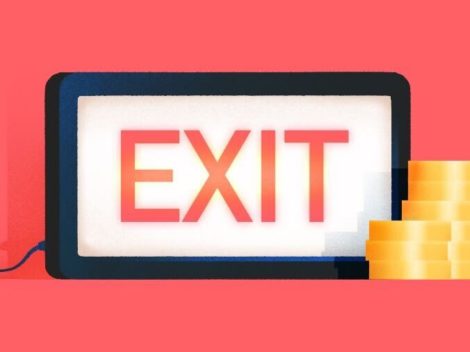By Idan Meir
The Great Resignation describes how employees have been taking ownership of their careers and aspirations by reassessing their company’s culture and mission. This has led to many people leaving well-paying, secure jobs to pursue more social ventures that are better aligned with their personal values.
Search less. Close more.
Grow your revenue with all-in-one prospecting solutions powered by the leader in private-company data.
Companies are also responding to the easing of pandemic restrictions and changes to social distancing mandates. There’s a lot of discussion and debate about what in-person/remote working looks like in 2022.
This has been deemed the Great Return.
Inclusive working practices
A new poll found that 61% of Americans working remotely would choose to keep doing so if given the option.

Fifty-three percent of U.S. companies consider themselves either “fully office” or “mostly office” workplaces, while 78% of knowledge workers want “location flexibility,” and 72% are unhappy about their company’s current level of flexibility.
The pandemic also forced a reassessment of what “working hours” means. Many people continued to work while juggling remote schooling and child and/or family care, as well as dealing with their own mental and physical health issues. Working hours now accounts for flexible time zones and flexible working habits, not just the amount of “connected” time you put in.
We know there’s tension between employer and employee expectations (just look at this recent memo from Tesla), so all of this begs the question: What can we do?
Inclusive environments
For those employees who want to return to in-person work, does their office environment truly support them? Employees who are immunocompromised may want to see mask mandates remain in effect. Those with low or no vision may want to see improvements in accessibility for their physical environment.
It’s no longer enough to have designated parking spaces, accessibility ramps or hearing loops installed in your building. Corporations need to level up their accessibility game and create a truly inclusive, welcoming environment for all.
Inclusive commutes
The Great Return isn’t only about being in the office; it’s about getting to and from the building too. If companies insist employees have to be in-person, even if only part-time, then it’s worth factoring in how and when they arrive.
Despite progress, accessibility on public transport is severely lacking. According to the National Household Travel survey, 25.5 million Americans have travel-limiting disabilities. And many rely on public transportation to go about their daily lives. Added factors such as finding the right stop, identifying the correct vehicle amongst a crowd, and safely accessing the vehicle itself all require extra planning or validation by people with travel-limiting disabilities.
And that’s before we factor in that tThe Great Return will affect traditional peak travel times and traffic flow. Crowding and obstacles are yet another hazard faced by people with travel-limiting disabilities.
Many companies have already embraced flexible working hours so people can adjust the start and end times to suit their personal situation. Is there more that can be done?
We know there is no one-size-fits-all solution. Corporations need to be creative in how they assist their employees during these changing times. It’s not perks and incentives that will move the needle. It’s choice and compassion.
Idan Meir is the co-founder and CEO of RightHear, a startup turning public spaces into accessible environments for people with spatial orientation challenges, including thosepeople who are blind or visually impaired. Prior to RightHear, Meir founded Hubanana—one of Israel’s leading tech hubs for startups and entrepreneurs. He holds a bachelor’s degree in psychology and business from The Open University of Israel.
Illustration: Dom Guzman

Stay up to date with recent funding rounds, acquisitions, and more with the Crunchbase Daily.




![Illustration of a guy watering plants with a blocked hose - Global [Dom Guzman]](https://news.crunchbase.com/wp-content/uploads/quarterly-global-3-300x168.jpg)
67.1K Followers